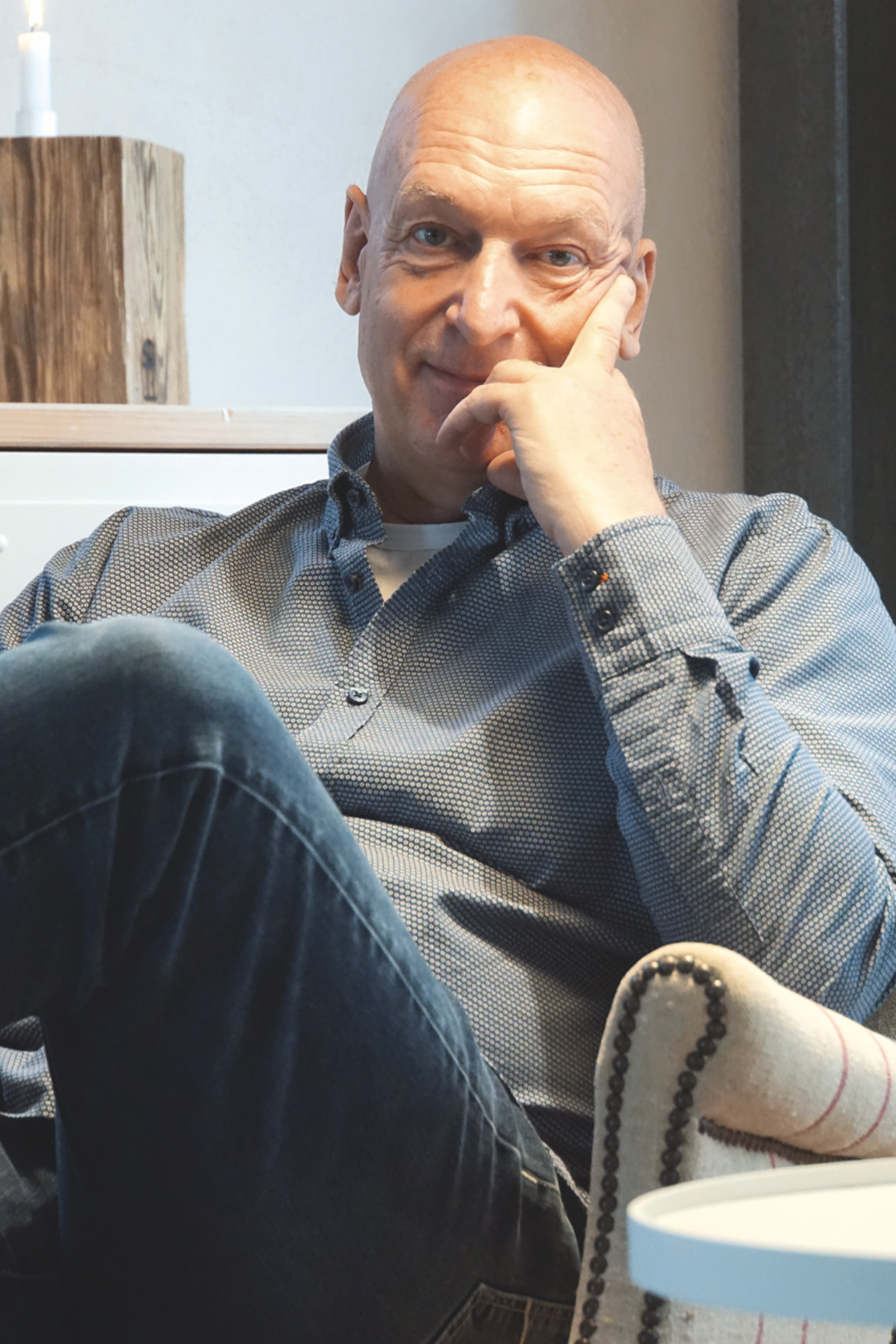Practice for
Psychotraumatology

Philosophy
During a lifetime we often adhere to different convictions– usually becoming more conservative with age. But I have remained social in my thinking and feelings, and I have not given in to complacency – on the contrary, the more I have encountered the cruelties of perpetrators, certain institutions and systems, the more I stand for justice and compassion.
One could call this attitude humanistic, its foundation even Christian – but caution is warranted with this term. But if people like Søren Kierkegaard, Dietrich Bonhoeffer and Karl Barth are linked to it, then it is fine with me.
Just as our body and our mind are interwoven, so philosophy and spirituality are only real in action, i.e., in the experience and expression of our feelings and our body. Cognition on its own, separated from our experience, is but technically useful.
Life is not meaningless, as many feel today. It is about development, change and learning; what we do, how and why we do it is meaningful, to us and to others.
Is this already a coherent philosophy? Maybe not as a sophisticated academic theory, but it is a valid foundation for working with clients who sometimes have lost all faith in goodness and life.
But light has always been superior to darkness.
How I Work
The first meeting is all about an exchange of your concerns. If we are both convinced, we could work together we begin with trauma work in the same or the following session. The sessions usually last 60 minutes, but their conclusion should always be harmonious – we do not let the clock rule.
How does trauma therapy work? Well, it partly depends on your preferences and dispositions; is your inner nature more figurative, physical or emotional? We work in a light trance, which I learned to use as a hypnotherapist. This state helps you to access your implicit memory, where the parts responsible for the symptoms of your stress disorder are stored.
Whether consciously remembered or not, emotionally overwhelmed remnants remain dissociated in us, disconnected to the rest of the personality. Healing is about processing and integrating these parts. Ultimately, all other processes – stabilization, confidence building, inner encounters – only serve this goal.
For chronic trauma (CPTSD), there are often inner parts with their own differing perspectives on the world, on people and even your body. Always at eye level and with loving care, we work with these parts using various approaches. We get to know them, understand them and integrate them back home.
There is no homework, at least not in the conventional sense. The development of the observer, a perception for one’s needs, one’s body and one’s reactions are continuous processes between sessions. An increasingly conscious life, but less in the cognitive sense but more in the emotional-physical realm will be helpful for any trauma resolution. Trauma is not a cognitive process but takes place in the nervous system and thus in the entire body.
The duration of a trauma therapy is very variable – from a few sessions for PTSD to a long therapy for complex and dissociative situations. We work as efficiently as possible – usually intensively and strenuously during some phases – and as extensive as necessary.


Goal
The goal of our work is improving your mental and physical symptoms, performance, well-being, self-experience and relationships. Being traumatized implies significant limitations in one or more areas, and simply accepting this limitation cannot be the solution.
Remembering is not the primary goal of therapy but neither do I shy away from remembering when it becomes necessary for your process. Is there any process possible without any form of remembrance? Probably not. How newly surfaced memories are dealt with varies greatly. Often reality precludes many possibilities – perpetrators have died, those responsible are no longer available, relationships have changed – or everything in your life will be rearranged, no stone left unturned. My part is to accompany these intense transformations. The goal is to create a situation fitting your life – if possible, in harmony with the people who accompany you. A painless and contactless life is not my goal. We remain human beings, subjects to changes, learning processes, ultimately also to suffering. Unresolved traumatic stress prevents these true experiences, because it keeps us from felt contact with reality. Finding these stuck processes, confronting them and working through them will be our common goal.
